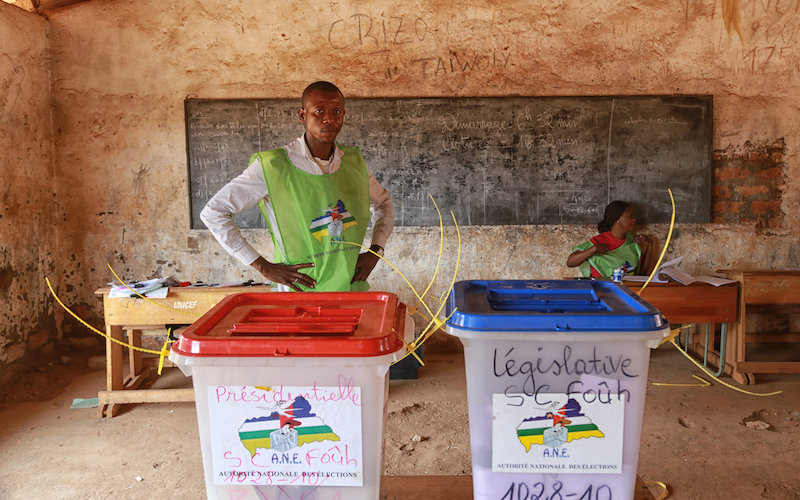
Electoral Reforms in Africa Need Int. Support
Elections in some African countries are dangerous and continue to challenge peacekeeping officers and election officials. Many African countries continue to face enormous difficulties in handling the issues between diverse cultural and ethnic communities through elections which may result in violence and insecurity. It is not just a question of political manipulation and security but also poor understanding of violent actors and the assessment of the pre-conflict situations. The lack of security enhances conflict between two or more factions paving the way for one group to declare war on another. This is precisely the problem. Political will fails and political leaders often manipulate this situation to gain power. This cripples political leadership as some leaders find their decisions more favorable to the nation then the other thus gaining from conflict.
On the contrary, there have been some countries which have conducted peaceful elections and peaceful exchanges of power. On such example is Benin, which held its fifth election since 1991. In spite of many accusations of the election being rigged, the election was completely fair.
Moreover, many countries such as Ghana, Mali, Senegal, Mauritius, Botswana and South Africa have successfully conducted free and fair elections. It should moreover be noted that the transition period from a dictatorship to a democracy has helped make elections peaceful.
There are still many African countries that are unable to conduct free and fair elections because many continue to live under tyranny. To quote Amanda Thomas, an expert on elections, “failure to conduct free and fair elections have largely been unsuccessful in Sub Saharan Africa with dictators in power for decades. Today, there are more than 10 countries which are struggling from “rigged elections.”
It is only possible to remain in power, if the opposition cannot contest elections. These incumbent leaders do not hesitate to use the media to their advantage. Actions such as these results in intimidation of voters and opposition leaders and do not result in political change. The winning leaders then make constitutional changes depending upon their needs which may have horrific repercussions on the nation’s socio-economy.
Elections in post-conflict areas
Many countries hold elections right after a civil war. Although conflicts in Africa are declining significantly, there are still countries that hold elections following a conflict. The elections after war may strengthen democratic governance, as in Liberia and Sierra Leone. However in Angola and Côte d’Ivoire conflicts between the opposition and ruling parties resulted in ethnic cleansing and massive abuses of human rights along with the worst killing’s which continued for over nine years.
Moreover, post conflict elections pose a grave risk to “temporary” stability, as there is a chance of violence occurring again. It is important for African policymakers to recognize the need to first rebuild democracy by increasing democratic governance followed by electoral reforms and then focus on demilitarization.
Possible Solutions
To ensure the legitimacy of elections in Africa, policymakers along with prominent active international aid development organizations and UN agencies should form a watch agency or commission that would act as observers during elections. This commission should function independently in order to avoid manipulation from the elite. Furthermore, to maintain legitimacy, policymakers need to ensure that no observer groups are allowed except the commission.
The role the media plays in portraying political leaders and political parties should be recognized. The media has vast influence on the voting public which means that balance is absolutely necessary. This is only possible by preventing the intervention of outside groups and outside influences. The role and responsibility does not only fall with the media, but equally with the security forces tasked to ensure the safety and security of the elections. It is also important for security forces to maintain their neutrality. Thus, it is important for policymakers to ensure that the security forces include UN Peacekeepers as their task is to maintain peace.
It is important for the policymakers to ensure that these elections remain open to all communities to decrease the chance of ethnic violence. It is also important for policymakers to involve civil society groups in their decision making process, as involving such groups will decrease violence and conflict in the country.
One of the most pressing issues today is that the exchange of power cannot take place without instigating violence and conflict in African countries. It is very important for political leaders and policymakers to identify peaceful solutions and for the current leadership to conduct timely elections while ensuring safety, security and legitimacy of the same. Manipulating elections to gain advantage towards the opposition is a sign of poor governance and leads to violence and conflict. Once a leader is chosen, it is the government’s responsibility to ensure good governance and further strengthen democratic governance through cooperation and coordination with international aid development agencies, think tanks and other development organizations in order to establish frameworks that will benefit the country.

